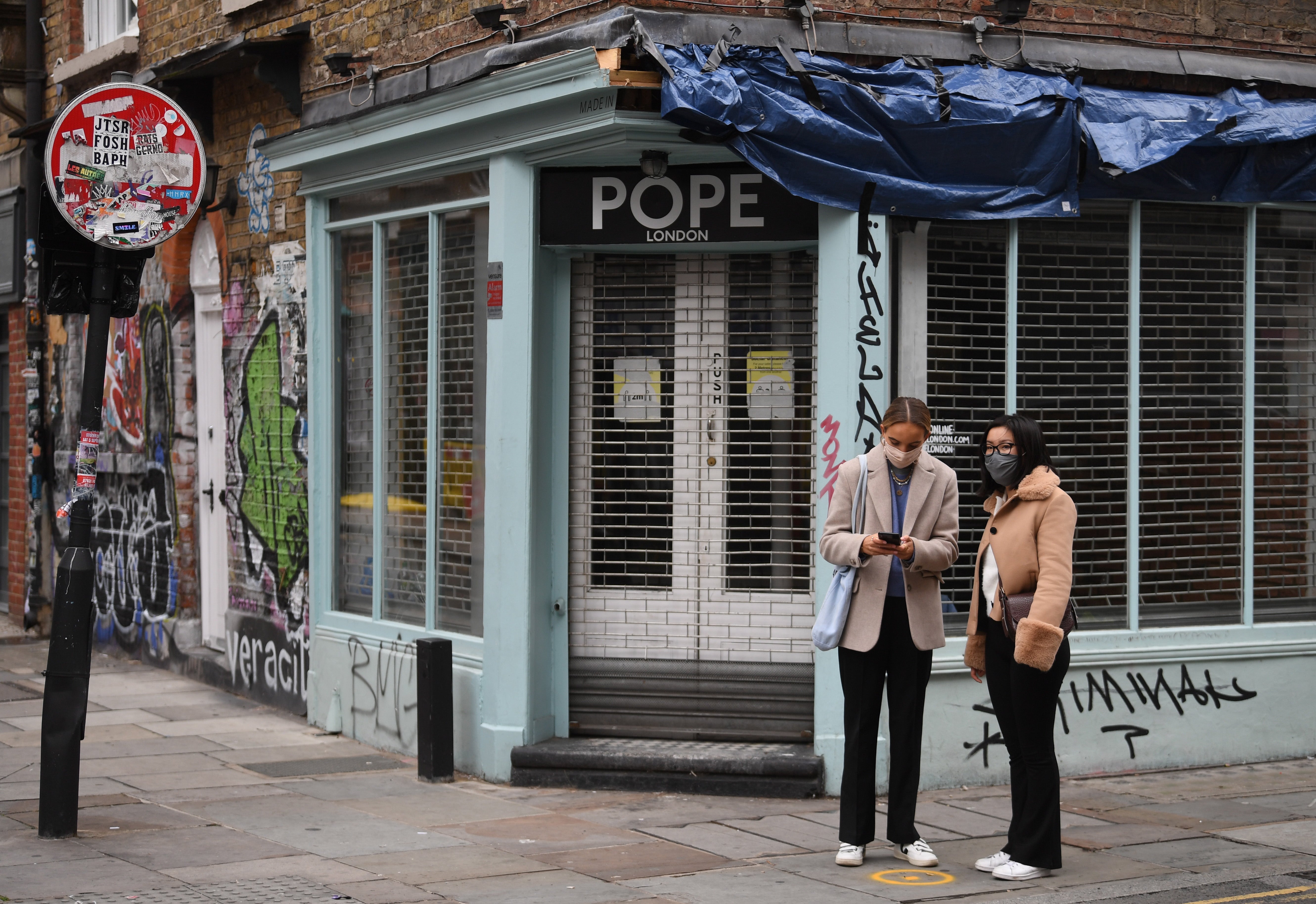Britain’s young people need more than Sunak’s Kickstart as pandemic lays waste to jobs
Even with the furlough scheme, unemployment is rising rapidly and the young are getting hit hardest, writes James Moore


The pandemic may have delivered an unprecedented economic shock, but its chief victims are the same as in every previous “black swan” event: ethnic minorities, disabled people, women and the young.
The devastating impact on the last of those groups was made clear in the latest batch of figures from the Office for National Statistics.
They showed that unemployment between October and December increased to 5.1 per cent, a five-year high. About 1.74 million people were out of work – a rise of 454,000 compared with the same period in 2019.
Rishi Sunak’s job retention scheme, currently estimated to be covering as many as 4.5 million workers, is all that is preventing the dam from bursting.
But it can only do so much in the face of a crisis of this scale, and it is young workers who are pouring through the cracks that have opened up.
Almost three-fifths of the 726,000 payrolled jobs that have been lost during the pandemic were those of employees aged 24 and under, and there is potentially worse to come, with the Bank of England forecasting that unemployment will peak at 7.8 per cent this year.
The restrictions imposed to curb the spread of the virus have been very necessary. But just as the government is duty-bound to protect those most at risk (something it hasn’t always lived up to), it has a similar responsibility to assist those on whom the cost has fallen.
To that end, the chancellor launched his Kickstart scheme, under which UK companies can offer six-month work placements to young people claiming universal credit, with their wages paid entirely by the government. There’s also a £1,500 incentive for every work placement created.
To date, the results have been mixed. Earlier this month, it emerged that it was creating just 13 jobs a day for its intended targets for every 292 getting laid off. Concerns have also been expressed about potential fraud, and Meg Hillier, the chair of the influential House of Commons Public Accounts Committee, has asked the National Audit Office to take a look.
Business groups and unions would very much like for it to be effective; they don’t want to to be seen to be pouring cold water on it. But the scheme has already been tweaked once, with the requirement that firms create at least 30 places to be a part of it now removed. I understand that work is continuing to look at other potential roadblocks in its construction.
The figures suggest that further reforms may be required and Sunak should stand ready to do what is necessary, in addition to extending the furlough scheme and looking at other measures to stimulate an economy that will need help not only for as long as the nations of the UK are following their reopening roadmaps but also in the months beyond.
The plight of young people should be a priority. They suffered most from the effects of the 2008 financial crisis and took some of the heaviest blows from the failed austerity policies pursued by previous Conservative or Conservative-led governments.
During the current crisis they have been hit particularly hard by the difficulties faced by the hospitality sector, which has traditionally employed large numbers of the under-25s. Some more targeted assistance ought to help there and seems due.
The unemployment figures did contain some crumbs of comfort. The claimant count decreased slightly on a monthly basis, reaching 2.6 million in January. Figures from HM Revenue & Customs pointed to an estimated 83,000 additional payrolls in January compared with December. This was interpreted as a sign that businesses may be adapting to operating under lockdown and have been tentatively hiring to take account of that.
Even if that’s the case, it’s thin gruel. The data only serves to strengthen the case for extending the furlough scheme, as I argued yesterday, but it also makes clear that more needs to be done to address the issue of youth unemployment.
For the government, and Sunak in particular, not to act on this would be morally indefensible.

Join our commenting forum
Join thought-provoking conversations, follow other Independent readers and see their replies
Comments